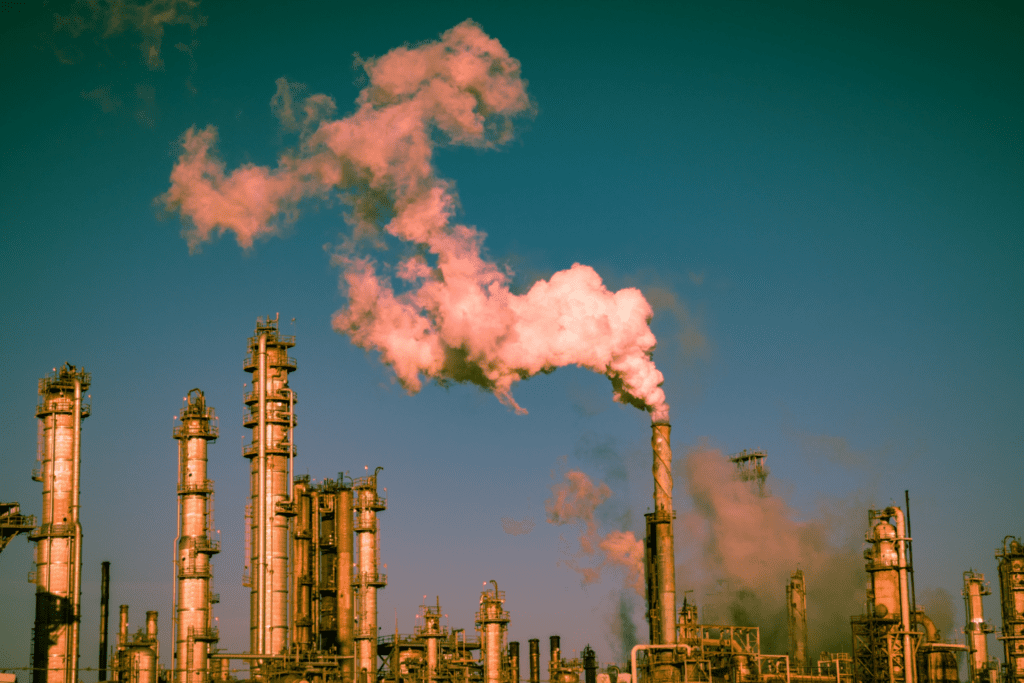AirMail - Refinery & Petrochemical Permits
Open Refinery and Petrochemical Plant Permit Applications
Do you have questions or need more help creating your comments? Email us at [email protected]. We may also be able to support/represent you if you are interested in participating in a hearing to challenge this permit.
Please make sure to contact your elected officials about your concerns regarding this proposed facility. They have networks and influence to effect change, but they need to hear from you first! Not sure who represents you? Check here.
What are Refineries and Petrochemical Plants and why are they an air quality concern?
Refineries and petrochemical plants are facilities for industrial processes related to oil and gas.
- Refineries transform crude oil into usable petroleum products, like fuel, diesel, kerosene, or asphalt.
- Petrochemical plants convert petrochemical compounds into raw materials for products like plastic, lubricants, and solvents.
Refineries and petrochemical plants are major sources of hazardous emissions, including particulate matter (PM), nitrogen oxides (NOx), carbon monoxide (CO), hydrogen sulfide (H2S), and sulfur dioxide (SO2). Many of the emissions from these facilities are potentially carcinogenic (cancer-causing) such as BTEX compounds (benzene, toluene, ethylbenzene, and xylene). Refineries and petrochemical facilities may also emit a wide range of toxics such as ethylene oxide, 1,3 – butadiene, and chloroprene These pollutants represent chronic risks to community health that may develop over years of exposure.
In addition, sudden events like refinery explosions and fires, plant failures, or chemical and gas leaks can lead to higher concentrations of toxins and highly corrosive chemicals in the air that can result in conditions that are immediately dangerous to the safety and health of nearby residents.
Sources of emissions near refineries and petrochemical plants include:
- Flares
- Equipment leaks and malfunctions (fugitive emissions)
- Refinery operations (High-temperature combustion processes in the burning of fuels)
- Transfer of products through pipelines (raw material, intermediates, and finished products)
- Refinery explosions and fires
The health impacts of air pollution exposure include:
- Damaged cells in the respiratory system
- Stress to the heart and lungs
- Aggravated respiratory conditions, including asthma
- COPD (Chronic obstructive pulmonary disease)
- Increased likelihood of cancer development over lifetime
- Shortened life span
Additionally, individuals who have been consistently exposed to air pollution may be more likely to suffer severe health impacts from COVID-19.
In addition to the potential public health impact of air toxics, the industrial processes associated with refineries and petrochemical plants release carbon dioxide, a common greenhouse gas. Increased levels of carbon in the earth’s atmosphere lead to global climate change.
Water contamination is another severe environmental concern. Wastewater from industrial processes can contaminate surrounding groundwater and surface water. During catastrophic weather events such as heavy rains and floods, the runoff of toxic materials may infiltrate surrounding communities; compounding the risks associated with extreme weather.
In the Greater Houston area, refineries and petrochemical plants disproportionately impact communities of color and with lower incomes. These facilities are frequently located in or near these communities, namely along the Houston Ship Channel. This includes residents of neighborhoods such as Galena Park and Harrisburg/Manchester.
This industrial proximity is detrimental to resident health and is known as “double jeopardy.” In other words, communities are both impacted by toxic emissions and pollutants as well as risks of exposure to chemical accidents.

